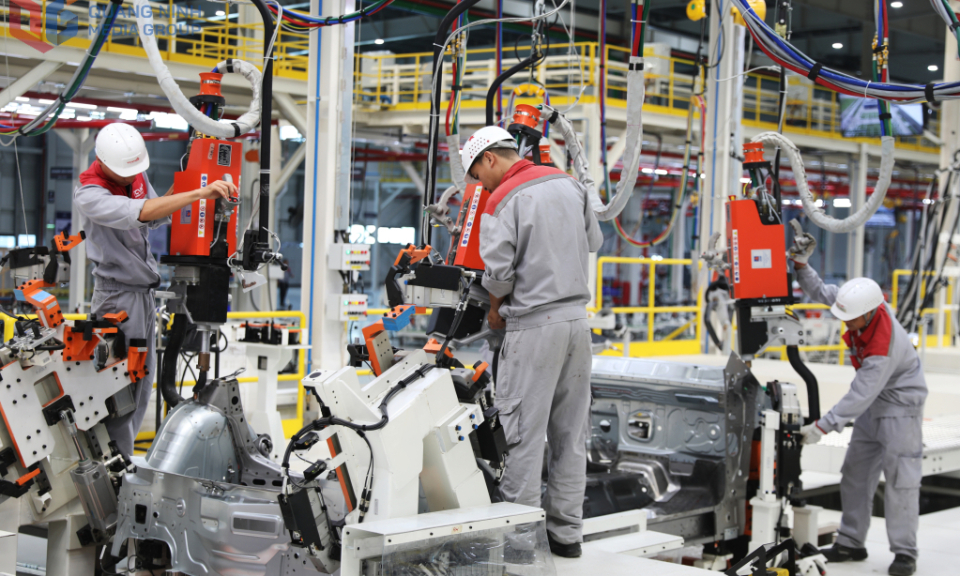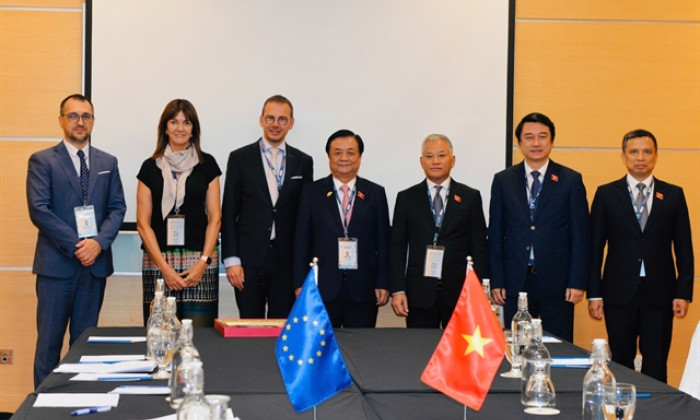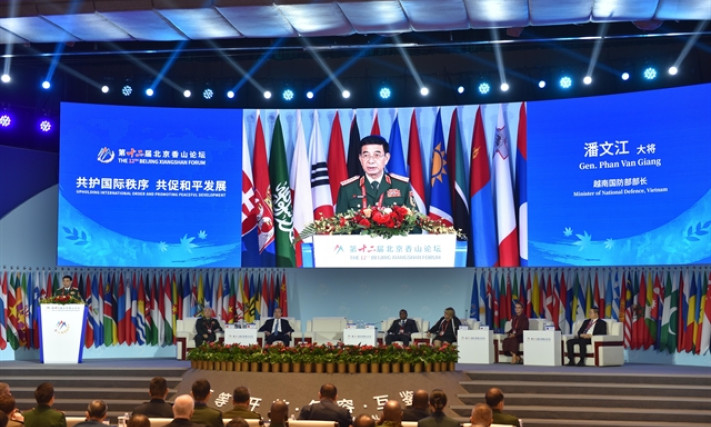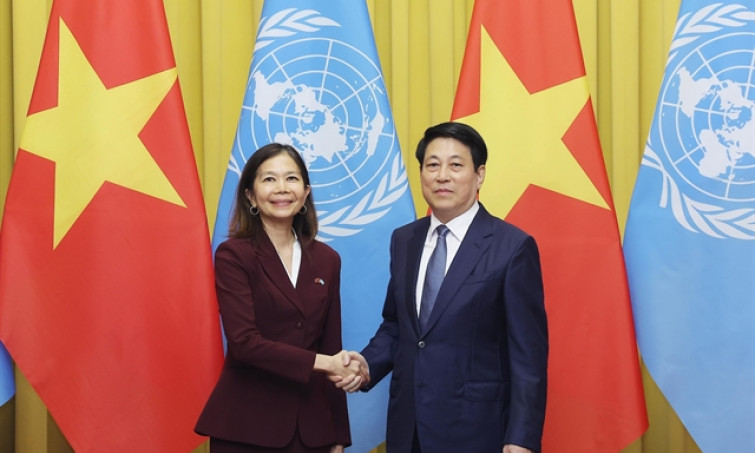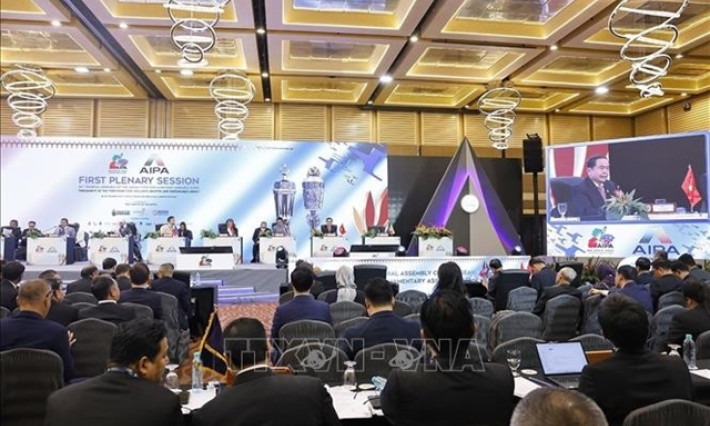Hà Nội's strengths draw in foreign investors
Hà Nội's outstanding advantages in attracting foreign direct investment are its geographical location, skilled workers and administrative reforms.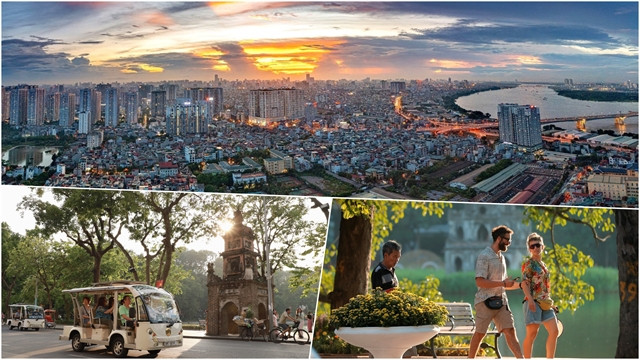
With an open investment environment, modern infrastructure and an abundant, skilled workforce, Hà Nội has been positioning itself as a promising destination for foreign investors.
As investment capital around the world goes into a downward spiral, due to the ongoing significant restructuring of global trade, investors are still drawn to Việt Nam and particularly Hà Nội.
Potential for growth
The capital city is Việt Nam’s largest financial centre. It has the second largest business community and is where the majority of research institutes, universities, hospitals and banks are headquartered. These elements give Hà Nội unique strengths in international cooperation based on innovations and technological advancements.
Hà Nội’s population accounts for 8.1 per cent of the country’s total, of which 51.7 per cent are young people. Trained labourers accounted for over 73 per cent of the city’s workforce in 2023.
One major driving force for the development of the capital is the abundant financial resources. Total State budget revenue from 2011 to 2023 increased by 10.65 per cent on average every year, while total social development investment increased by 9.47 per cent, annually.
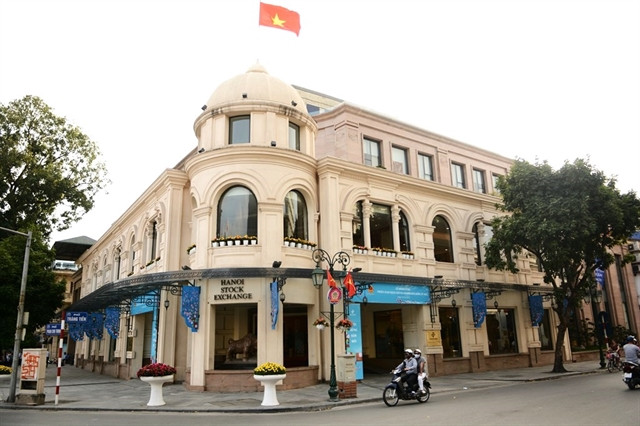
There has been a major shift in the structure of investments into social development, with investments from the State decreasing from 51 per cent in 2010 to about 34.3 per cent in 2023, while the non-state sector rapidly increased from 35.3 per cent to approximately 59 per cent.
Cumulatively, by 2023, Hà Nội has attracted 4,500 foreign direct investment (FDI) projects, with a total registered investment capital of over US$33 billion, up 70.5 per cent from 2022. This brought the capital into the top five cities with the highest FDI in the country.
In the first nine months of this year, $1.5 billion in FDI was poured into Hà Nội. Many corporations from the US, South Korea, Japan, Singapore and Europe have actively been making investments into the city. Apart from transferring new technology, training the local workforce and contributing to the global value chains, each year FDI enterprises contribute 10 per cent of the city’s budget revenue, 11 per cent of the city’s workforce and 11 per cent of its social development capital.
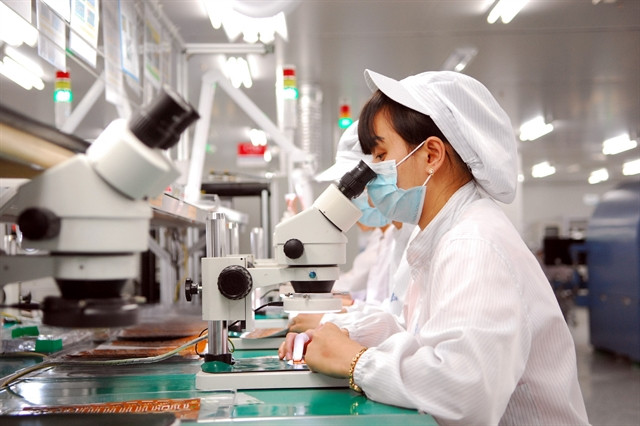
Speaking at the meeting with Prime Minister Phạm Minh Chính on August 17, Trần Sỹ Thanh, chair of the Hà Nội People’s Committee said the capital aimed to attract a total of $3.13 billion in FDI this year.
"The confidence of international investors in Hà Nội’s investment environment is evidence of the strong reforms in management, business environment improvement and investment promotion by the city,” he said.
“Hà Nội is not only an attractive destination for foreign investors, but also an important economic and financial centre of the region and the country.”
In line with the Prime Minister's decision, the city is now in charge of the Hòa Lạc High-Tech Park, which was previously managed by the Ministry of Science and Technology, according to Thanh.
It means the Hà Nội People’s Committee is responsible for coordinating 111 investment projects in the park, of which 96 are domestic and 15 are foreign investment projects, with a total registered capital of approximately VNĐ116 trillion ($4.57 billion).
Nguyễn Ngọc Tú, deputy director of the Hà Nội Department of Planning and Investment said at the same meeting: “The FDI sector has made a significant contribution to the socio-economic development of the city with its advantages in capital, technology, and management capacity.”
This sector contributed to economic growth from both the supply and demand perspectives, increasing total investments into social development and growing the Gross Regional Domestic Product (GRDP), he added.
The presence of FDI enterprises had also created pressure to compete in each sector, which would serve as a motivation for domestic companies to improve technology, update designs, enhance product quality and boost their competitiveness.
“This has significantly impacted the development and restructuring of industries across various sectors," Tú said.
Sound legal foundation for investments
The city is offering several incentives to attract high-tech investment and lead the development of the economy.
According to Nguyễn Đức Kiên, former head of the Economic Advisory Group to the Prime Minister, Hà Nội's outstanding advantages in attracting FDI are the geographical location, human resources and administrative reforms.
Economist Nguyễn Minh Phong said: “To attract investments from in and out of the country, a good investment environment is key.
“Hà Nội benefits from a transparent, favourable legal foundation for attracting investment, thanks to important regulatory documents such as Decree 15, issued by the Politburo on May 5, 2022, which gives direction for the city’s development until 2045.
“The 2024 Capital Law, approved by the National Assembly in June, also introduces many mechanisms and policies that support the city’s growth.”
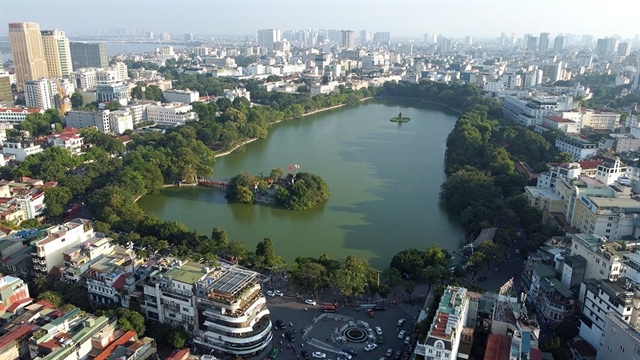
Hà Nội has long considered the enterprise community, local and FDI alike, as an important dynamic for its development and global integration. The investments it is attracting are geared towards sustainability, are those that will create impacts, transfer technology and connect Việt Nam with the global production and supply chains.
Nguyễn Ánh Dương, director of the Hà Nội Investment, Trade, and Tourism Promotion Center said: “The city always pays attention and provides the most favourable conditions to attract investment.”
In addition to existing general incentives, the 2024 Capital Law had established several special mechanisms and policies for strategic investors, he added.
These included exemptions and reductions in land and water surface rental fees, as well as preferential customs and tax procedures for imported and exported goods related to strategic investment projects.
“Notably, the Capital Law of 2024 includes outstanding provisions regarding the decentralisation of management and public asset management, which will assist the Hòa Lạc High-Tech Park in establishing a roadmap to attract new, high-value technology projects,” Dương said.
Regarding Hà Nội’s plan to attract more FDI, the city’s chairman Trần Sỹ Thanh said Hà Nội would focus on implementing Resolution 50, issued by the Politburo on August 20, 2019, which gives directions to consolidate the institutional framework and policies to enhance the quality and effectiveness of foreign investment cooperation by 2030.
“Accordingly, the city's direction for attracting FDI will focus more on depth than width, and will be aligned with the sustainable development goals,” he said.
Priority would be given to high-quality projects with value-added products and high competitiveness that focus on urban infrastructure development, supporting industries using modern, environmentally friendly technology, as well as projects in information technology, research and development, tourism, financial and banking services, human resource training, high-tech agriculture and safe food production.
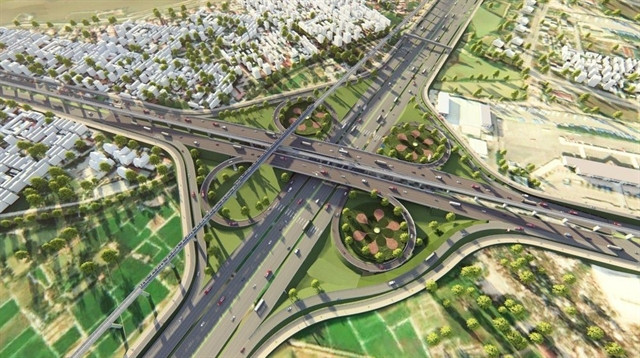
Strategically, Hà Nội also aims to attract investment from companies and corporations in the high-tech sector, according to Thanh.
“We will continue to innovate our investment promotion efforts, linking them with trade and tourism promotion, external relations and cultural activities,” he said.
“We will focus on key markets and countries such as the G7, G8 and the OECD, to showcase the city's potential and advantages."
Hà Nội has made solid progress in attracting FDI to contribute to economic development for itself and the country. With such efforts, it is hoped that more foreign corporations and businesses will come to Hà Nội and together with the people, build a sustainable and prosperous economy for the city and Việt Nam.

